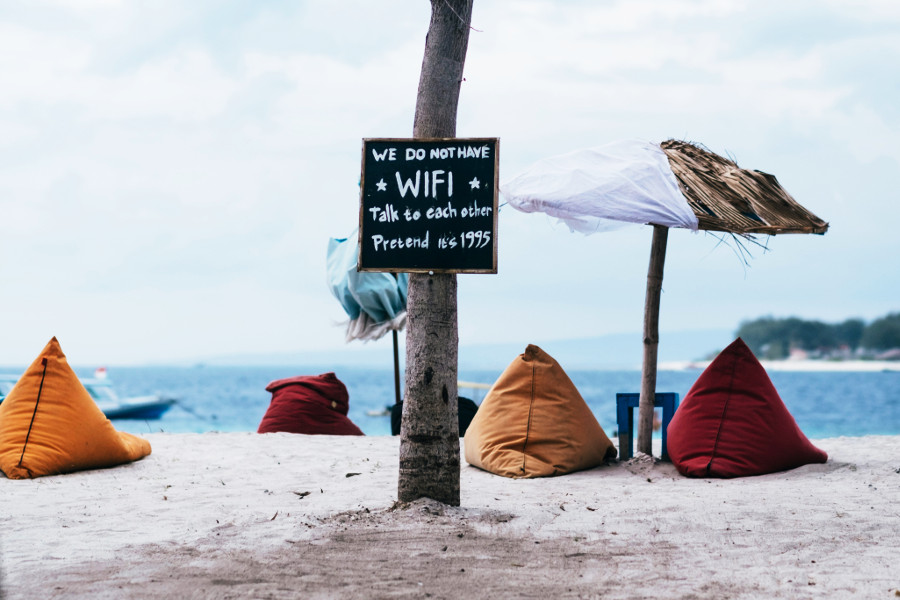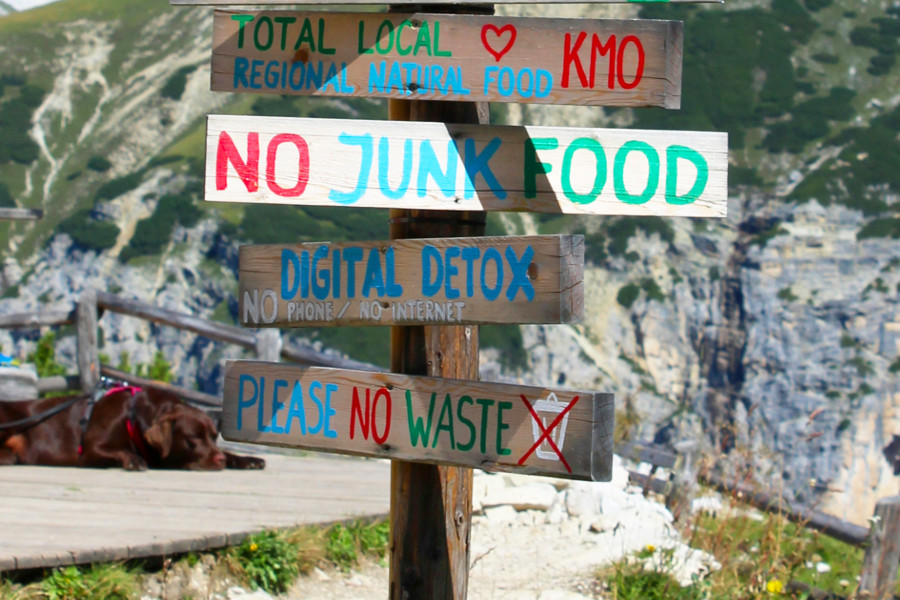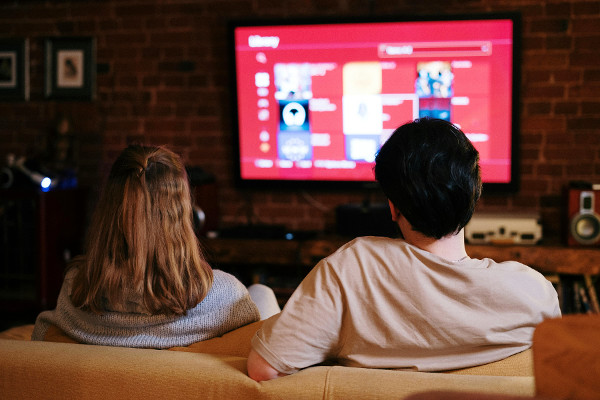How to Undergo a 30-Day Digital Detox: A Journey Back to Yourself
In the age of constant connectivity, it’s easy to forget that we were once meant to exist without the endless stream of notifications, emails, and social media updates. We’ve evolved as social creatures in the natural world, and the constant hum of the digital realm can sometimes drown out the deeper connections that help us feel grounded. If you’re feeling overwhelmed by the pressures of modern technology and struggling to find peace amidst the noise, then a 30-day digital detox may be exactly what you need to reconnect with yourself and the world around you.

We live in a time where digital media is everywhere - at home, at work, even when we’re out with friends. Our phones and devices are always on, always demanding our attention. It’s no surprise that this constant connection can lead to stress, isolation, and the kind of emotional fatigue that makes it harder to enjoy the moments that truly matter. As we become more dependent on screens, it’s easy to lose sight of the simple joys of being present in the moment. The question is: how can we reclaim our peace of mind in this digital age?
There’s no shortage of ways to deal with the constant barrage of information. Meditation, mindfulness, and connecting with others are just a few examples of how we can stay grounded. But if you’re looking for a more radical approach, a digital detox might just be the reset you need. It’s about unplugging, taking a step back, and embracing the idea that life outside the digital world can be just as rich and fulfilling. So, what exactly is a digital detox, and how can it help you?
The Hidden Dangers of Digital Overload
Let’s start by understanding why a digital detox is so important. When we spend too much time plugged into our devices, it’s not just our minds that suffer - our bodies do too. Digital media has a way of infiltrating every aspect of our lives, often in ways we don’t even notice.
Stress and Isolation
Yes, we’re more connected than ever, but the irony is that these connections often leave us feeling lonelier. We spend more time typing and scrolling than we do talking face-to-face with others, and the result is a lack of meaningful social interactions. As humans, we’re wired for connection, and the digital world, for all its convenience, can’t replace the warmth and depth of in-person conversations.
Addiction and Anxiety
Have you ever checked your phone just to see if there’s a new notification, only to end up scrolling for hours? It’s easy to get sucked into the constant cycle of checking emails, social media, and news updates. This kind of digital addiction doesn’t just eat away at your time - it can make you feel more anxious, stressed, and overwhelmed. The pressure to be constantly available or to keep up with the latest trends can be exhausting.
Brain Drain and Lack of Critical Thinking
Digital media is designed to keep us engaged, but it often does so by presenting information in bite-sized pieces that encourage passive consumption. The more we scroll, the less we think critically. Instead of reflecting deeply on information, we simply absorb it without question. Over time, this erodes our ability to think for ourselves and process information meaningfully.
Disconnection from Reality
When you spend hours online, it’s easy to forget about the real world. Digital environments are often curated to show only the best sides of life, leading to unrealistic expectations and a warped sense of reality. We can become so absorbed in our online personas and virtual relationships that we forget what truly matters in the physical world around us.
The Sedentary Lifestyle
Spending hours in front of screens doesn’t just affect our minds; it takes a toll on our bodies too. The longer we sit, the less we move. This sedentary lifestyle is linked to a variety of health issues, from poor posture and back pain to cardiovascular problems and weight gain.
Eyes and Sleep: The Silent Saboteurs
We’ve all experienced eye strain after hours of staring at a screen. But the damage goes deeper. The blue light emitted from digital devices disrupts our sleep cycles, making it harder to fall and stay asleep. The result is a vicious cycle of fatigue, irritability, and decreased productivity.

How Life Used to Be Before Digital Everything
There was a time when things weren’t so fast-paced and always on. Before we had smartphones and social media, people communicated in more deliberate ways, and the pace of life felt slower and more intentional.
Communication
Instead of texting or sending a quick message on social media, people wrote letters, had long phone calls, and met in person. Communication was more thoughtful, and there was a sense of anticipation and excitement about hearing from someone.
Entertainment
Leisure activities were also different. People read books, went outside, played games with friends, or spent time with family. Now, we often turn to streaming services or social media to fill our downtime, sometimes without even realizing we’re wasting hours of our day.
Work and Productivity
Work once involved more physical paperwork, face-to-face meetings, and taking time to make decisions. Today, we rely on digital tools and apps to manage our schedules, but this often leads to multitasking and distractions, leaving us less productive and more mentally drained.
Shopping and Transactions
Before e-commerce, we visited stores and made transactions in person. Shopping was an event. Now, it’s a mindless click - a habit that can often lead to impulse buys and unnecessary purchases.
How to Make Your 30-Day Digital Detox Easier
A 30-day digital detox may sound challenging, but it’s all about setting small, achievable goals and being consistent. Here are some simple tips to help you ease into it:
Start Slowly
Don’t try to quit everything cold turkey. Start by cutting back on your screen time bit by bit. If you typically spend five hours a day on your phone, try reducing it by 30 minutes each day. Gradually ease yourself into the detox so that the transition doesn’t feel too abrupt.
Set Clear Boundaries
Make your digital detox intentional by setting clear boundaries. For example, commit to no screens for the first hour after waking up or the last hour before bed. These small limits will help you regain control over your device use.
Tell People About It
Let friends, family, and coworkers know that you’re taking a break from digital distractions. This way, they’ll understand if you don’t respond right away or if you’re less active online.
Find Alternatives
Instead of scrolling through your social media feed, pick up a book, take a walk, or start a new hobby. Use the extra time you gain to focus on things that nourish your mind and body.
Use Technology to Help
There are apps that can help you monitor your screen time, block distracting websites, and even send you reminders to take breaks. Use these tools to support your detox.
Create Device-Free Zones
Set aside areas in your home where digital devices are not allowed - like the dinner table or your bedroom. This will help you be more present with the people around you and improve your sleep quality.
Prepare for Withdrawal
It’s normal to feel a bit anxious or bored during the first few days of your detox. You’re essentially breaking a habit. But stick with it - over time, those withdrawal symptoms will fade, and you’ll start to appreciate the peace that comes with being unplugged.
A Simple 30-Day Action Plan for Your Digital Detox
Days 1-5:
- Reduce screen time by 30 minutes each day.
- Set a "no phone after 9 PM" rule.
- Inform family and friends about your detox.
Days 6-10:
- Track your screen time and make adjustments.
- Start replacing one digital activity with something offline, like a walk or reading.
- Designate device-free zones in your home.
Days 11-15:
- Implement a daily screen-free hour (maybe in the morning or evening).
- Begin journaling about your experiences and any changes you notice.
- Set aside time for an offline hobby.
Days 16-20:
- Cut down on digital news consumption to once a day.
- Continue replacing screen time with physical activity or creative projects.
Days 21-25:
- Keep track of how much time you’re spending online, and aim for a maximum of 2-3 hours a day.
- Reflect on how your body and mind are feeling.
Days 26-30:
- Revisit your boundaries and make any necessary adjustments.
- Celebrate your progress with a digital-free activity you truly enjoy.

Why You’ll Feel Better After Your Digital Detox
When you take the time to unplug, the benefits are clear. You’ll start to feel more present, connected, and energized. Here’s what you can expect:
Better Mental Clarity
Without the constant noise of digital distractions, your mind will have space to focus, think, and reflect.
Improved Sleep
Without screens in your face, especially before bed, your sleep quality will improve.
Increased Productivity
With fewer distractions, you’ll be able to focus better and get more done in less time.
Stronger Relationships
You’ll spend more time engaging with people face-to-face, leading to deeper, more meaningful connections.
Better Physical Health
More movement and less screen time will lead to better posture, fewer headaches, and a more active lifestyle.
Life After the Detox: Digital Minimalism
Once your 30-day detox is over, you don’t have to dive back into your old habits. Instead, embrace digital minimalism by being mindful about how you use technology moving forward. Keep only the tools and apps that add real value to your life, and set strict boundaries to ensure technology serves you - not the other way around. Check out the online community r/Digital Minimalism on Reddit to get more tips and to connect with like-minded folks.
Popular digital detox apps / tools:
- Forest
- StayFree
- Minimalist Phone
- Opal
- Flipd (also a productivity app)
- Digital Detox Tools (website)
Conclusion
A 30-day digital detox is a chance to reset, reconnect, and reclaim your life. The process doesn’t need to be difficult, and with a little planning, it can be incredibly rewarding. By taking the time to unplug, you’ll discover how fulfilling life can be when you’re not constantly tethered to your devices.
So, go ahead - give yourself the gift of a digital break. It might just be the most refreshing thing you’ve done in a long time.



